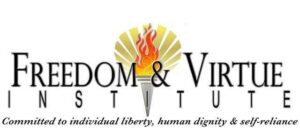One of the tenets at the heart of the American Founding was that property rights and freedom are strongly linked. In his Appeal to the Justice and Interests of the People of Great Britain, Arthur Lee of Virginia declared, “The right of property is the guardian of every other right, and to deprive a people of this, is in fact to deprive them of their liberty.” The founders understood that, without robust protection of private property, rhetoric about liberty rang hollow.
Some people view property rights as a tool of privilege, a scheme to favor the rich over the poor. The opposite is true. Secure property rights are the way by which poor people gain independence and self-reliance. Hernando de Soto’s well-known exploration of the obstacles to economic progress in less-developed countries, The Mystery of Capital, observes that many poor people in those nations are as intelligent, innovative, and hard-working as successful people in developed nations. What the poor lack is the legal accoutrements of prosperity—first and foremost, title to their property, on which foundation they can build and pass on wealth.

Those who are wealthy and well-connected have the wherewithal to subvert and manipulate property law to their own ends; those who are marginalized rarely do. A celebrated example is the case that led to the Supreme Court’s Kelo decision in 2005. As told in the book Little Pink House and a film by the same name, the story involves the attempt by a group of homeowners, led by Susette Kelo, to defend their properties against an eminent domain seizure by the city of New London, Connecticut. The city was acquiring the properties for the purpose of enabling a new private development. In other words, the city was using its eminent domain powers to take land from some (less wealthy and well-connected) individuals and give it to an influential corporation. As might be expected, libertarian groups filed amicus briefs on behalf of Kelo, but African-American organizations such as the NAACP also joined the cause, pointing out that eminent domain had often been used as a weapon against poor and minority neighborhoods.
As these examples make clear, property rights are not only about economic wellbeing. They are entwined with every aspect of life—the guarantee of “every other right,” as Arthur Lee put it. Holding the rights to one’s home is not merely about enjoying the economic security of what is often one’s largest financial asset. It is also about having the space and freedom to flourish as a person. Ownership provides stability to family life and solidity to a community.
Similarly, ownership of a business is not merely a source of income for an entrepreneur. It is an expression and testament to his or her creativity, dedication, and vocation. It provides meaning to the individual and serves the common good through supplying the needs of the market.
The nineteenth-century Italian priest and philosopher Antonio Rosmini called private property a “sphere around the person.” No one else, he wrote, “can enter this sphere, and no one can separate from the person that which is inherent in him as a result of the connection between him and what is his own.” Rosmini believed that violation of property rights was a violation of personal dignity and thus morally objectionable. Pope John Paul II affirmed the importance of property for all in his 1991 encyclical letter, Centesimus Annus: “A person who is deprived of something he can call ‘his own,’ and of the possibility of earning a living through his own initiative, comes to depend on the social machine and on those who control it. This makes it much more difficult for him to recognize his dignity as a person, and hinders progress towards the building up of an authentic human community.”
While property rights are indispensable to a just and thriving society, they are not absolute. As western nations under the influence of Christianity gradually came to understand, to hold persons in bondage as property is a contradiction of the human dignity that property rights are supposed to uphold. Property rights are preserved within the context of the rule of law, which defines and constrains those rights, ensuring that they are not used as a means of violence against the rights of others. Property rights are also embedded in particular cultures and legal systems and thus their character will vary somewhat from place to place. Finally, property rights, like all rights, entail obligations. The owner of property has a responsibility, above and beyond any legal requirement, to use his possessions to the benefit rather than the detriment of himself and others.
With these qualifications understood, the poor and vulnerable and those who care about them should be the most vigorous defenders of the right to property. Such a right provides a legal hedge against those who would exploit vulnerability to their own ends.
Personal freedom and property rights rise and fall together. In the words of James Madison, one of the authors of our Constitution, “persons and property are the two great subjects on which Governments are to act… These rights cannot well be separated.”


